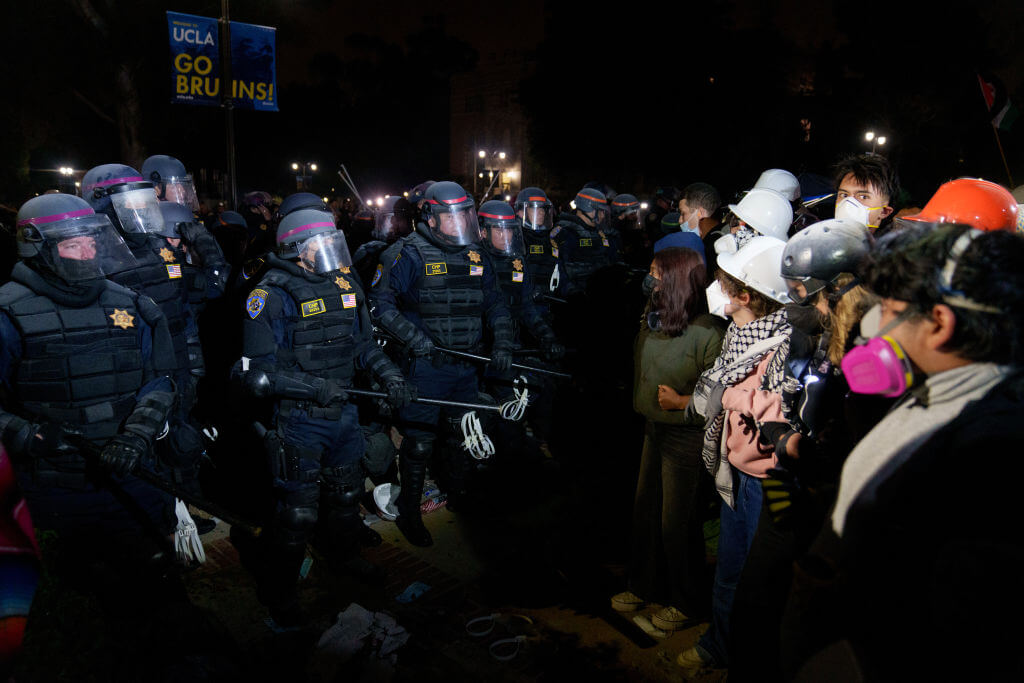Poll: 47% of US voters believe campuses should ban pro-Palestinian protests
Survey also shows more voters support humanitarian aid to Palestinians than military aid to Israel

Members of law enforcement enter a pro-Palestinian encampment at UCLA on May 2 in Los Angeles. Photo by Eric Thayer/Getty Images
A new survey found 47% of U.S. voters believe colleges should ban pro-Palestinian protests, compared to 30% who say the demonstrations should be permitted. A slightly smaller number — 41% — would ban pro-Israel protests.
The vast majority of voters — 76% — also said they support colleges asking police to protect campuses from violence.
The survey was conducted April 27-28, before the latest police crackdowns of recent days, including the New York Police Department’s removal of activists who had occupied a building on the campus of Columbia University; the Los Angeles Police Department’s breakup of a pro-Palestinian encampment at the University of California, Los Angeles, that had previously been attacked by pro-Israel demonstrators; and Thursday’s arrest of 90 people at Dartmouth College.
The survey, by Morning Consult, a U.S.-based business data and tech company, polled 1,986 registered voters nationwide. The reported unweighted margin of error was plus or minus 2 percentage points.
More voters in the survey backed humanitarian aid for Palestinians (58%) than supported military aid to Israel (47%); 60% said they want to see a ceasefire.
Nearly half — 46% — of those surveyed support colleges condemning Hamas’ attacks on Israel. A third said that colleges should condemn Israel’s war in Gaza.
Fewer than 2 in 5 voters support the student-activists’ call for universities to divest from Israel, while 3 in 10 had no opinion on the matter. Support for divestment was strongest among the wealthiest and most highly educated households, which, Morning Consult pointed out, are the cohorts from which colleges solicit donations.
A message from our CEO & publisher Rachel Fishman Feddersen
I hope you appreciated this article. Before you go, I’d like to ask you to please support the Forward’s award-winning, nonprofit journalism during this critical time.
At a time when other newsrooms are closing or cutting back, the Forward has removed its paywall and invested additional resources to report on the ground from Israel and around the U.S. on the impact of the war, rising antisemitism and polarized discourse.
Readers like you make it all possible. Support our work by becoming a Forward Member and connect with our journalism and your community.
— Rachel Fishman Feddersen, Publisher and CEO